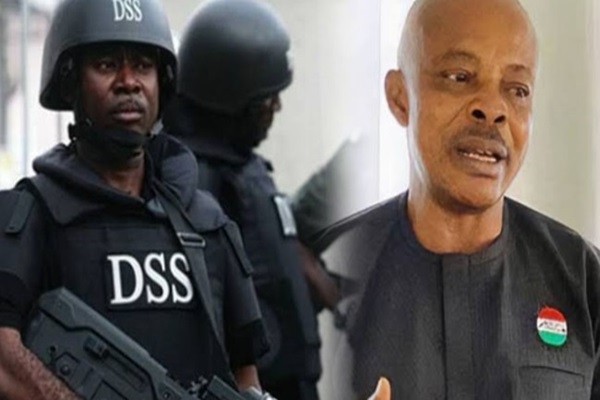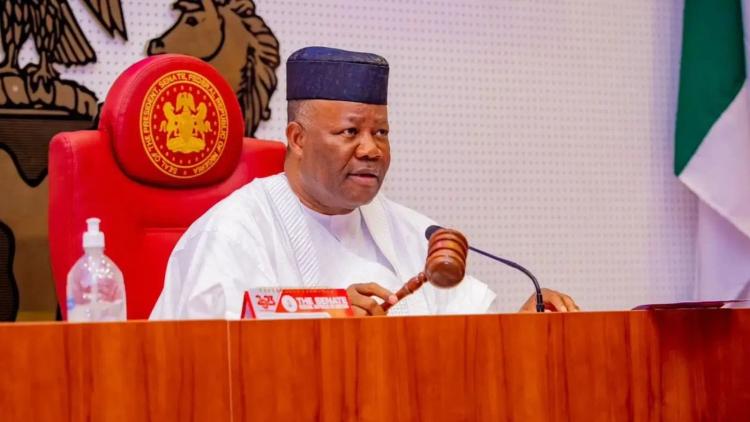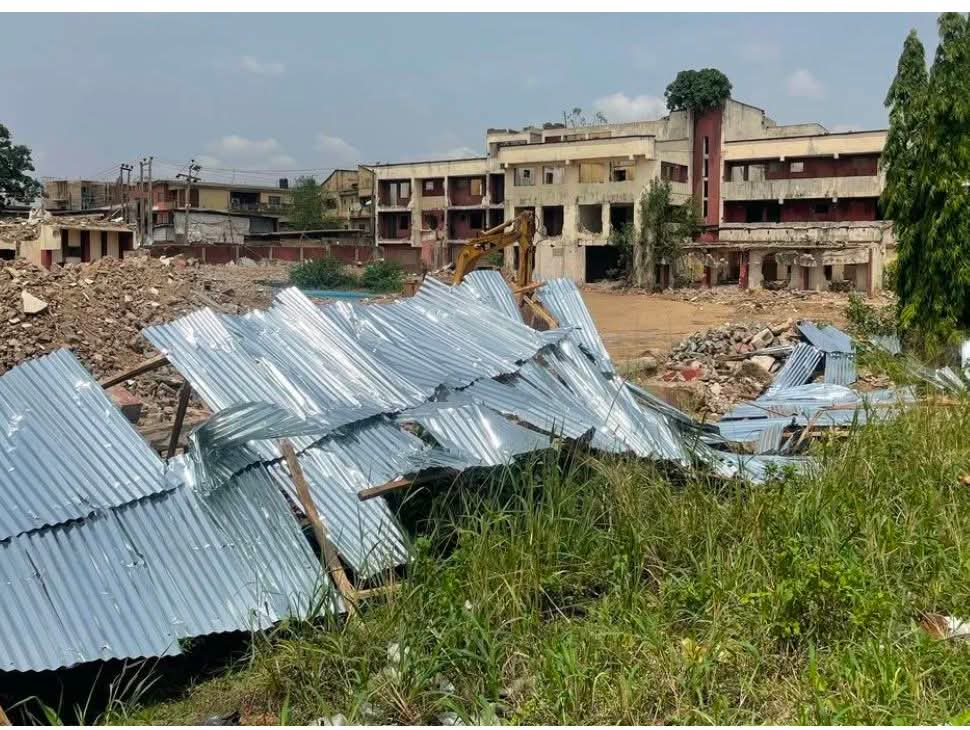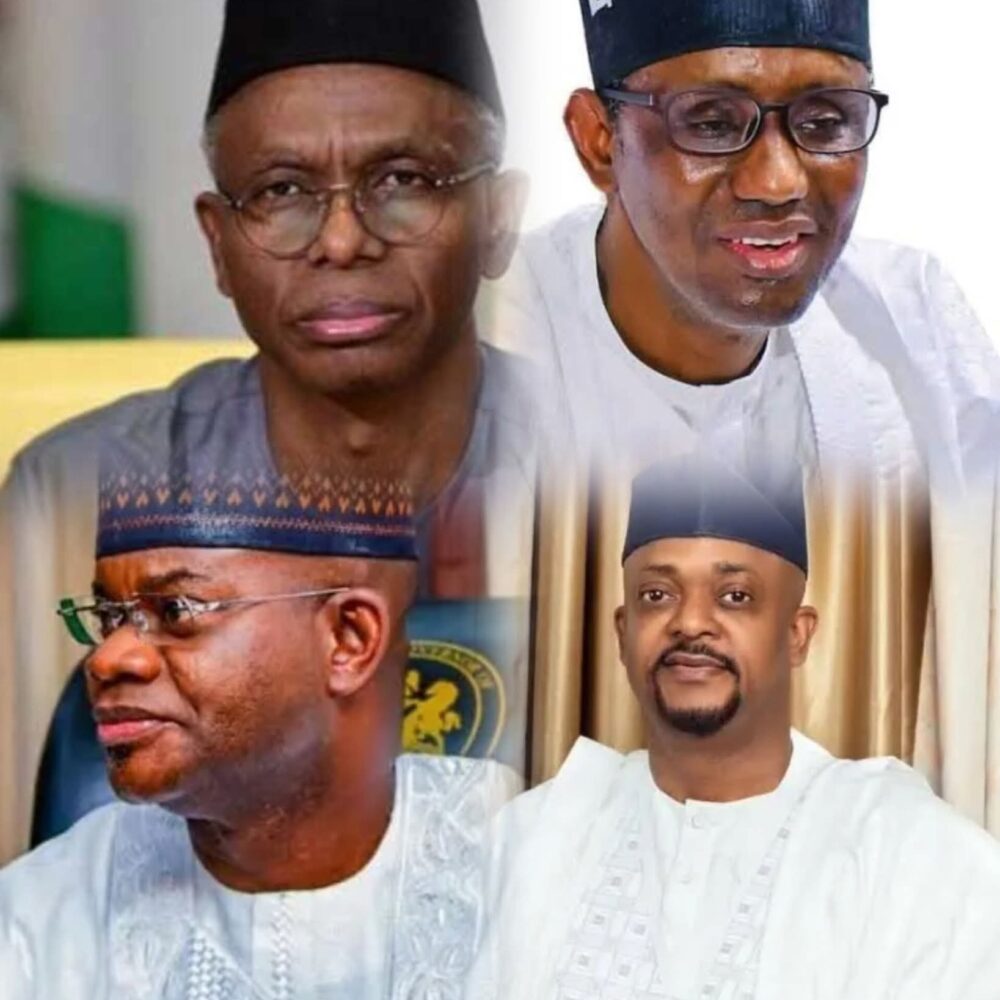By the time the Department of State Services released Nigeria Labour Congress President, Comrade Joe Ajaero, last Monday evening September 9, he had become contrite, remorseful and perhaps ashamed of his uninformed action. The labour leader was invited twice by the secret police and twice he failed to honour the invitation.
As I learnt, during the second invitation, Ajaero even told the new DSS boss who telephoned him that he was travelling out of the country and could only honour the invitation on his return. What an insufferable arrogance! However, unbeknownst to him, at the behest of the police and office of the national security adviser, which have been investigating him, the DSS had placed him on a watch list.
For failing to honour the invitation, the SSS operatives promptly arrested him at the Nnamdi Azikwe International Airport, Abuja on Monday morning as he arrived to board his flight to London. He was whisked to DSS office in Abuja where the police interrogated him for his alleged infractions, which remain yet unstated. It is instructive to state that the DSS, according to official sources, has nothing against Ajaero. However, the service arrested him so he can respond to the allegations levelled against him by the police.
That interrogation was said to have been conducted within the DSS premises with his lawyer in attendance. When the interrogation was over and Ajaero was released on bail, the DSS took him home in a well-fortified security vehicle early enough on Monday night. He was then asked to break the news of his release to his associates by himself. Unknown to many, the NLC president himself delayed the announcement of his release till almost midnight that same Monday for reasons known to him.
I have gone to this length to narrate Ajaero’s encounter with the DSS based on the information I garnered from sources close to the service in order to demonstrate that the NLC president was not picked up at the airport for no unjustifiable reason, as many may want us to believe and that he was not in any way manhandled by the service during the period of the arrest.
On the contrary, he was reportedly treated with respect and decorum, and his rights fully respected. The DSS explained to him that not honouring the invitation extended to him was a grave error on his part, which he allegedly admitted and reportedly apologised.
With that background, it is evident that the United Kingdom Trade Union Congress, which intervened in the matter and attacked the present administration for alleged intolerance and violation of Ajaero’s fundamental human rights without justification, did not understand the issues involved and what actually transpired. The TUC-UK is one organisation lawyers would label a meddlesome interloper in this matter. And it was just fit and appropriate that the Presidency had given the association the response it rightly deserved.
For crying out loud, why would a labour leader deserving of that name or more precisely, why would an Ajaero who is the NLC president not honour a lawful invitation by a legal entity like the Nigeria Police?
It would appear Ajaero deliberately acted the way he did in order to further heat up the polity that has already become tense over the fuel situation or to befuddle the matter of his arrest in a bid to embarrass the government.
I will return to the matter of premium motor spirit shortly.
Just like Ajaero would want it to act, the NLC behaved in a way typical of the union. Without interrogating what actually happened, the congress slammed the federal government with a midnight deadline to order Ajaero’s release, otherwise government should be ready for a showdown.
Affiliate organisations of the labour union were placed on red alert, following an emergency meeting of the national administrative council of the NLC in Abuja in reaction to the arrest. They were directed to mobilise for a confrontation with the government if the NLC president was not released by midnight.
Why is labour so recalcitrant and inflexible, why does the union always resort to protest, in spite of the present government’s demonstration of good faith with them? Why is labour always dangling the strike option at the snap of their fingers?
The other day and despite the then-ongoing negotiations with the government and organised private sector, labour still called for a strike over the national minimum wage, disrupting business activities in some parts of the country, particularly aviation operations in Lagos and Abuja. In the end, after its ineffective industrial action, labour returned to the negotiation table with the government and OPS during which a new N70,000 national minimum wage was agreed upon.
The two unions even got an icing on the cake, as President Bola Tinubu directed a three-yearly review of the NMW as opposed to the existing every five years review.
The President Tinubu administration has shown good faith, trust in labour, and belief in what a harmonious relationship the government and labour unions can contribute to nation building and a stable polity. It is high time labour reciprocated this appropriately.
On the matter of the fuel situation, I mean the recent increase in the pump price of PMS, which Ajaero obviously wanted to load up with his arrest to create another confusion, there is also a need for some clarifications. In the wake of the hike in the pump price of petrol from N617 to N897 per litre, while calling for an immediate reversal of the increase, the NLC had claimed the hike was a breach of the agreement it reached with the government during the minimum wage negotiations where it came down from its demand of N250,000 to N70,000.
In a statement signed by Comrade Ajaero, Labour claimed it had an understanding with the government that there would be no further increase based on which it agreed to the N70,000 NMW. However, those who attended the negotiations and witnessed as the negotiating parties reached an agreement said there was no such understanding. I believe Ajaero and the other labour leaders know the true position of things and are merely engaging in subterfuge.
Truth is the recent hike was a difficult pill for government to swallow. President Bola Tinubu recently said In Beijing, China while addressing the Nigerian Community there that if there was a better option, the government would have taken it. The Nigeria National Petroleum Corporation Limited had long informed the government it was not covering its cost, arguing that with the unification of the multiple exchange rates that earlier existed, the company now required more money for the foreign exchange it would need for fuel importation. NNPCL argued that the matter was not helped by the high debt it owed suppliers.
According to the corporation, in order to guarantee fuel availability, there is a need for an increase that would be close to the cost of making the products available. And because the PMS price in Nigeria is about the lowest within the sub-region, smuggling walked on all fours as the products are being smuggled across the border.
We can argue that the government needs to double up its efforts in checking smuggling, and that would be right. However, fuel availability must be guaranteed in the interim while efforts are being made to drive down the cost including warding off smuggling. Availability is expected to be further assured with Dangote Refinery now coming on stream.
Indeed, the announcement on Friday that the federal government had finally reached an agreement with Dangote Refinery on the commercial terms for the supply of crude oil to the refinery and the off-take of its PMS is heart-warming. Following the agreement, the government announced that the distribution of petrol from the refinery would commence on Monday, September 16 with an initial 25 million litres per day. Under the agreement, NNPCL will be the sole off-taker of petrol from Dangote Refinery while diesel from the facility will be sold directly to any interested marketer.
And as a buffer for the gradual reduction in the demand for PMS, the government is also speeding up efforts on the compressed natural gas initiative. Already, the government has commenced the distribution of CNG conversion kits and cylinders to transport unions in the Federal Capital Territory, Abuja, Kogi, Nasarawa and Niger states under a plan aimed at converting one million commercial vehicles free across the country in the next two years. As opposed to PMS that is around N897 or N900 per litre, CNG costs between N230 and N300 per kilogram.
In my view, the federal government must now begin the implementation of the NMW and get the organised private sector to also toe the same line to stem labour’s seeming uneasiness. Arrears on the NMW must also be paid to win over the hearts of workers. This is also where the governors must immediately come in as well. The increasing revenue now going to them should come handy in implementing the new minimum wage.
*Rahman is a Senior Presidential Aide





